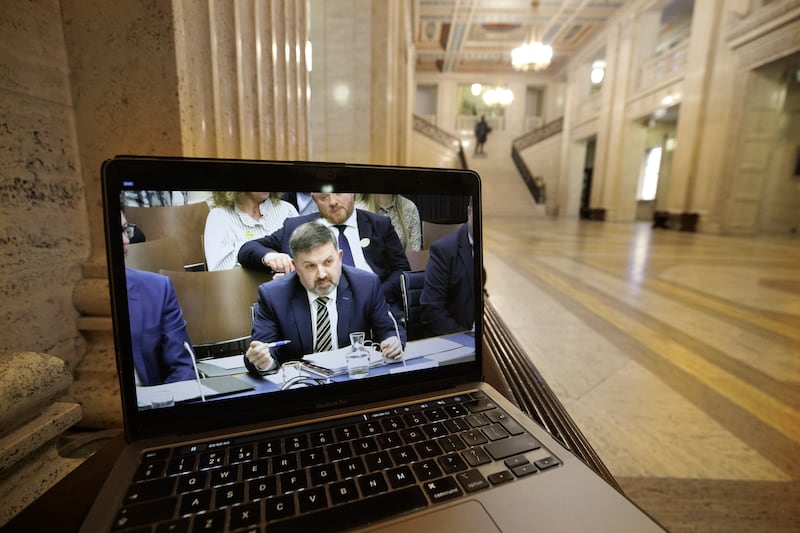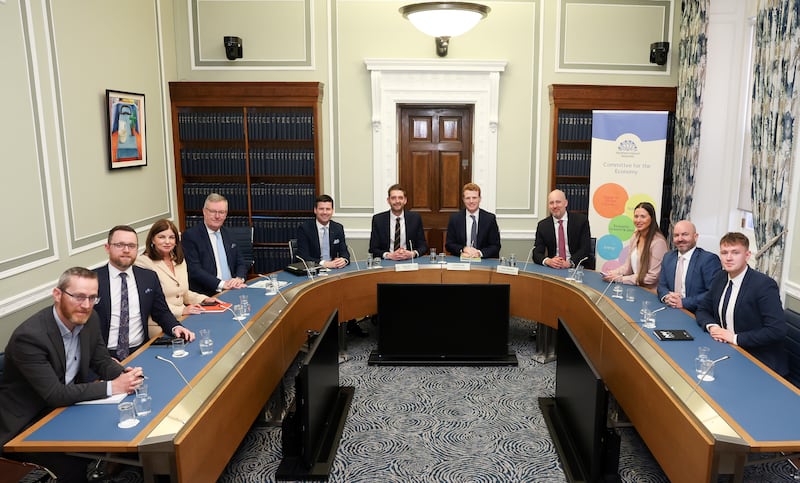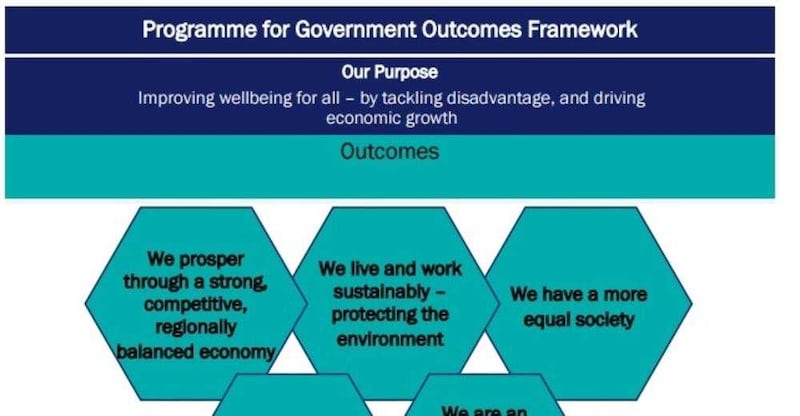Do you remember when the great and the good in Britain, Ireland and the US told us that the solution to all our problems was the return of Stormont?
We were told that if only the DUP would end its boycott, Stormont could, in those immortal words, “get back to work”. (That’s “work” in the very loose sense of the word. The Assembly only sits on Mondays and Tuesdays.)
On Tuesday, for example, the Assembly sat from 10.30am to 4.55pm, with an hour for (subsidised) lunch. Three of its five-and-a-half hours were given over to two motions, one from Sinn Féin and one from the DUP.
Sinn Féin called on the Assembly to “note with concern” a recent report on drugs-related deaths and called on the Minister for Health to “urgently” implement the report’s recommendations.
That’s the same Minister for Health who sits in government with Sinn Féin, so a government party called on the government to do something.

Not to be outdone, the DUP then proposed a motion also calling on the Minister for Health (a UUP member of the Executive) to launch a campaign to attract more foster carers. Like Sinn Féin, if the DUP were particularly concerned about the issue, one of their ministers could have raised it with Health Minister Robin Swann at an Executive meeting.
However, that is not how Stormont works. The Executive parties indulge in public indignation about the problems in society without either recognising their own role in creating those problems, or their responsibility to resolve them. This is particularly evident in the Assembly’s committee system.
There are nine statutory committees, seven standing committees and a chairpersons’ liaison group. That’s 17 committees whose job it is “to look at” specific subjects – but not to actually do anything about them.

Some say that talk is cheap, but not in Stormont. Shortly after they returned to “work”, MLAs received a pay rise because, unlike other public sector workers, their salaries are linked to inflation. So an MLA now earns £1,000 per week. The first and deputy first ministers receive £2,380 per week.
Then they receive expenses on top of their salaries. In the year to last October, when the Assembly was not sitting (although in fairness, MLAs were diligently engaged in sitting at home), the total cost for allowances and expenses was over £10 million. That’s nearly £30,000 a day, including Saturdays and Sundays.
So what do we get for our money? The answer is bad government.

To run any organisation you need a corporate plan, known in Stormont as the Programme for Government (PfG). It sets out what you intend to do, usually over the next three years. You then cost that plan and allocate available money to pay for it.
Stormont does not have a plan, even though the Executive parties were engaged in planning with civil servants for months before the Assembly reconvened. Instead it now presents a budget, which allocates money to each government department.
However, without a PfG, the money tends to be allocated on the basis of political horse-trading. Since no party asked for a guarantee of sufficient funds in the Good Friday Agreement or the St Andrews Agreement, our political parties’ obsession with sectarian rivalry has left Stormont very short of cash.
- Dear Michelle and Emma. You’ve done the PR. Now when are you going to tackle public services? – Patrick MurphyOpens in new window
- The naked cynicism of our politicians as public services flounder – Patrick MurphyOpens in new window
- David McCann: Executive needs to do a few things well instead of lots poorlyOpens in new window
In 2015 the main parties agreed to implement the Conservative government’s reduction of welfare payments which, among a widespread pattern of deprivation, has left one in four of our children in poverty.
What do we get for our money at Stormont? The answer is bad government
In response to Stormont’s insolvency, the first minister has said we must “widen the debate around fiscal levers”, which is presumably Tyrone-speak for “We are going to charge for some public services”. The four Executive parties agreed to raise £113 million as part of the deal to return to Stormont, but that is unlikely to be mentioned until after the Westminster election.
The return-to-Stormont deal provided £3.3 billion, but £600 million went on public sector pay awards (for only for one year). The remainder will barely cover running costs in government departments, but the backlog of capital projects means that our health waiting lists will continue to grow, road and rail transport will still be second class, and our education system will remain a crying shame.
So it is only half right to claim that the Assembly is back to work. It is back, but after 25 years of public service decimation, it is quite clear that it does not work – except, of course, for those we elect to sit there.




